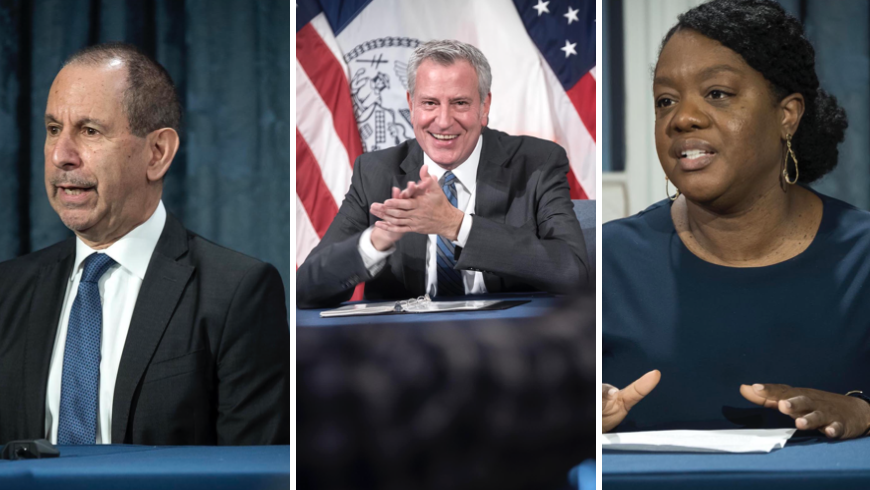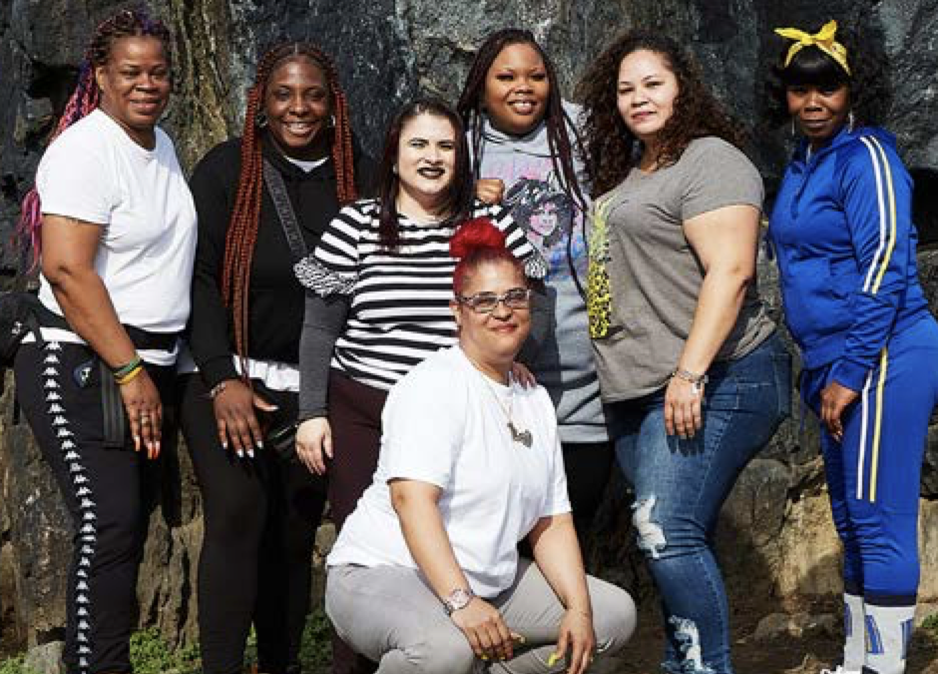
New York City will expand an experimental approach to preventing child abuse and neglect, Mayor Bill de Blasio announced Wednesday, describing it as key to the city’s COVID-19 recovery and his broader efforts to address racial equity before the end of his term early next year.
The city will soon expand its three family enrichment centers in the Bronx and Brooklyn to a total of 30 sites in all five boroughs. The centers are modest, store-front drop-ins run by nonprofits that are open to the public, similar to community centers. But they have a unique focus: connecting vulnerable families to resources before crises occur that might prompt teachers or neighbors to call the state’s child protection hotline. Such calls can lead to a family being investigated and children being taken into foster care.
Nearly 90% of foster children in New York City as of last September were Black or Latino, a vast overrepresentation of their presence in the general population, according to state data.
During a virtual press conference Wednesday, the mayor announced that the city’s child welfare agency will expand its current network of family enrichment centers to neighborhoods that have been the hardest hit by the COVID-19 pandemic, and have a disproportionate number of children in foster care.
The mayor’s announcement did not include cost estimates for the expansion. But if the $450,000 annual cost of each current site carries over to all 30 new sites, the total annual cost would increase from about $1.35 million to $13.5 million.
Neighborhoods that will soon have centers include Parkchester, Mott Haven, Canarsie and Bedford-Stuyvesant.
“A recovery for all of us means breaking the status quo from the past. Really thinking about what we have to do for working families, for struggling families, for folks who haven’t gotten their fair share,” de Blasio said Wednesday. He credited his Task Force on Racial Inclusion and Equity, launched near the start of the pandemic last year, with identifying the enrichment centers as an opportunity to support New York’s poorest zip codes. “This is a way to get ahead of problems before they happen and help get families on a very positive path,” the mayor added.

The family enrichment centers are run by nonprofits with city contracts, and offer space for community meetings and smaller family-centered activities, with staff who can help parents and youth access public benefits. Local residents can also help organize free cultural events, classes, seminars, movie nights and events such as Café con Amiga (Coffee with Friends) sessions, which are facilitated by Spanish-speaking parent leaders.
Enrichment centers are viewed in the child welfare field as innovative for their light-touch approach to keeping families together — a voluntary offer of no-strings, no-signup advice or support — rather than one geared toward greater social worker supervision and home-life intrusion. Other prevention programs in New York City and nationwide are geared toward more intensive family interventions, such as requiring group therapy and home “safety” checks with detailed note-taking on a parent’s performance.
National child welfare advocacy groups like Casey Family Programs have praised New York City’s enrichment centers as a way to prevent foster care by serving families in a more proactive and less confrontational manner.
Family enrichment centers bear little resemblance to the offices and courtrooms families going through the child welfare system must visit, often filled with fear and facing hostility from those who believe they’ve abused or neglected their children.
In the high-ceilinged, art-filled family enrichment center in The Bronx that is run by the nonprofit social services agency Graham Windham, “our space is your space,” its director Emily Lopez told The Imprint in 2018. “When someone walks in, we greet them. We’re not taking notes, we’re not asking a lot of personal questions or judging you.”
Some parent advocates have been critical of New York City’s family enrichment centers, given that they are run by the same agency responsible for removing children from their homes.
“Once again ACS is portraying itself to be for the community. But if they listen to the community they would hear that families want peer community supporters, not anything associated with ACS,” said Jeanette Vega, the incoming leader of the family advocacy organization Rise. Vega’s group has published a 33-page report outlining an alternative support system for parents that is outside of the city’s child welfare system.

“The fear of reaching out for help is real in NYC,” Vega said, “and if we keep putting funding into community centers that are connected to systems, parents will never thrive and get what they really need.”
Still, the question remains: Will the most vulnerable New York City parents — who live in racially and ethnically segregated communities devastated by decades of underinvestment — trust these so-called enrichment centers? The city’s Administration for Children’s Services (ACS) touted an independent evaluation last year that found the programs engaged between 200 to 750 people of all ages per month, 70% of whom were women. Seven in 10 survey respondents stated that the programs made them feel like they had stronger social support than before.
“We’ve been working to reach families proactively with resources that can support healthy children, healthy families and healthy communities,” commissioner of the Administration for Children’s Services David Hansell said at Wednesday’s press conference with the mayor. He added that the family enrichment center expansion would “reduce the likelihood that families ever come into contact with the traditional child protection system.”





